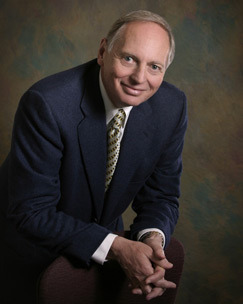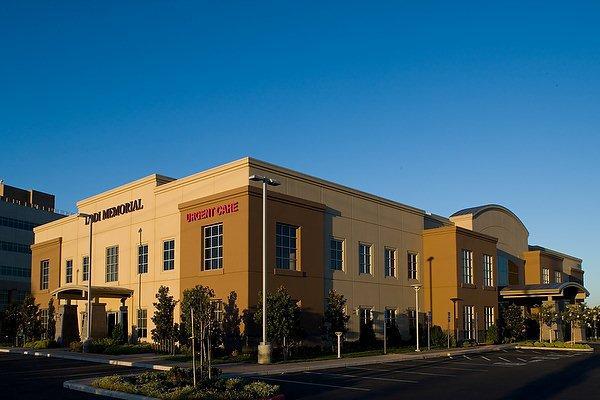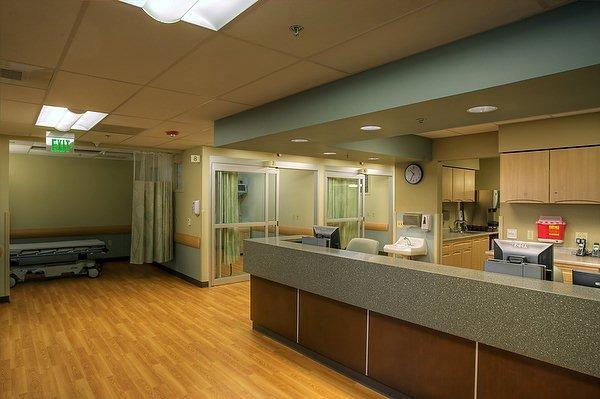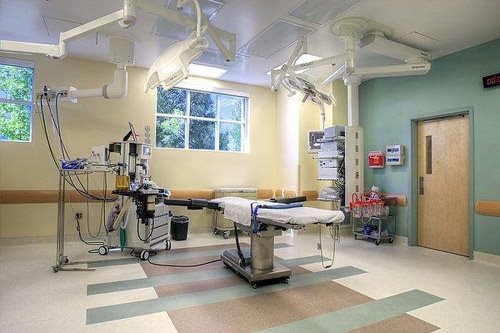Dr. John S. Silverton, An English Plastic Surgeon In Stockton, CA

With his UK medical education and US credentials, Dr. John Silverton brings his artistic sensibilities to his plastic surgery practice in California.
Name: John S. Silverton, MD, FRCS
(England and Edinburgh)
Clinic: Stockton Plastic Surgery
Location: Stockton, CA
Website: silvertonmd.com
That's interesting: Born and educated in the UK but practicing in Stockton, California, Dr. Silverton is a fellow of the Royal College of Surgeons in England and the Royal College of Surgeons in Edinburgh as well as the American Society of Plastic Surgeons.
You're a plastic surgeon trained in England who practices in the US. How did that happen?
I was born and educated in England. I went to boarding school as a teenager – Eton College, Windsor. My medical degree was from St. Bartholomew’s Hospital Medical College, part of London University. I completed my internship equivalent in England and went on to train General Surgery. I passed the FRCS (Fellow of the Royal College of Surgeons) in London and also in Edinburgh. This is the equivalent of board certification in general surgery in the U.S.
I did much of my plastic surgery training at Stoke Mandeville Hospital, Aylesbury and Canniesburn Hospital, Glasgow. Both were world renowned training centers for plastic surgery. While at Canniesburn, I met visiting plastic surgeons from Atlanta, Georgia and was invited to go to Emory University in Atlanta on an exchange. I was becoming dissatisfied with the NHS (National Health Service) in the U.K. and was looking for a suitable place to emigrate. I liked the United States and I also liked Emory University. I was fortunate to be allowed to complete my plastic surgery training there.
After that, I became an Assistant Professor of Plastic Surgery at the University of California at Davis. After a few years, I started my own private practice in plastic surgery in Stockton, California. I have now had my own practice since 1979.
Do you believe that your artistic skills have contributed to your interest in plastic surgery?
I chose the specialty of plastic surgery because it is an artistic specialty and is very exciting, and all patient issues are different. I consider myself artistic as I love to paint in oils and I paint fine art, which is very precise but also requires a sense of aesthetic beauty. My paintings adorn my home and my office. I am also creative in other ways. I learned to program computers and wrote a software program 20 years ago. I now like to create videos for personal use and for patient education in the office and patient marketing. I also create books of personal vacations and family and also my “before & after” books for display in my office.
My plastic surgery training was initially for reconstruction for congenital deformities, or after trauma, or disease (such as breast cancer) and skin tumors removal and burn reconstruction as well as cosmetic surgery of the face and trunk.
At first, I did not think of specializing within cosmetic surgery. This came about gradually as demand increased and insurance reimbursement decreased. My practice became 100 % cosmetic in 1995. Since then, I have sub-specialized within the discipline of cosmetic surgery. I have gradually concentrated on breast surgery of all types, abdominoplasties and liposuction. I keep very busy doing only these procedures now, which makes me very specialized.

Have you in any way changed the structure of your practice?
My practice has always been solo. There is great advantage in being your own boss. My practice grew over the years until the mid 2000s. I had my own private surgical suite with a large number of clinical and front office employees. I was almost too busy.
I decided that with the economic changes that were taking place that I should re-organize my business plan. I am now getting older and do not want to manage a private surgical suite. The laws are becoming more invasive and restrictive, and my equipment need upgrading, and a brand new ambulatory surgical suite opened up nearby.
I closed my surgery suite and now operate exclusively at the new hospital owned ambulatory surgery suite. In reducing my management responsibilities, I have been able to enjoy my clinical practice more.
Apart from some facial injectables, my practice is exclusively cosmetic surgery. This is different from other medical specialties. Here, no one has insurance. Everything is personal pay.
My office competes with other similar practices. We have a beautiful office setting, which is new and extremely well decorated. My staff is people-oriented. They love interacting with people. They have a ready smile and an easy friendly manner. They work to give patients a much better experience than they expected. Their goal is to do far better than each patient expects. They know that the practice exists for the patients, and that we need to continue doing surgical procedures. Scheduling new procedures is a priority.
My staff is compensated by an hourly rate plus commission for each surgery scheduled. Some people might think the commission should be for each surgery completed instead and indeed the commission is retracted for cancellations. However, they are more aware of scheduling, and they have a sense of accomplishment whenever someone actually schedules. I, myself, am more aware of surgeries completed, but the staff can relate better to surgeries scheduled.
Over the years, we have developed a financial agreement which applies whenever surgery is scheduled. It covers our policies on anesthesia fees, implant fees, facility charges, cancellation policies and others. 10% down payment guarantees the price and date.

Are you using IPL/laser technologies in your clinic? What are yuor thoughts on these technologies?
I do not like expensive technologies that have not been proven to help patients, but are mainly used to impress patients for marketing purposes.
For liposuction, I prefer to use the syringe liposuction technique. It is simple, and there are no machines. It requires surgical skill only. Lasers and power assisted devices might help with marketing and might lessen the work required by the surgeon, but hand liposuction in my opinion is more accurate and produces a better result. It is not the surgical instrument or machine that does the liposuction. It is the person holding or manipulating the machine that counts.
I have recently added the ACE cautery by Megadyne to my preferred surgical instruments. It is faster, cleaner with less bleeding and can be used instead of a scalpel blade.
How do you market you clinic?
All marketing is internal or external.
Our internal marketing is our branding and our telephone skills, and the special qualities of our staff. Our staff uses a script and an intake form for every new patient call. New patient emails should be answered within 5 minutes. Weekly and monthly statistics are kept on a spreadsheet. Patients all receive bound books customized for them before every surgery. I am always available 7 days a week for after hours calls. I always see every surgery patient the next day.
External marketing is almost exclusively via the internet. We have a very beautiful website with many “before & after” photos. We update the site every month. We have specials advertised on the site. We advertise our monthly Juvederm and Botox days and I personally do all treatments- no nurse treatments. I send out email blasts to my patient list once or twice a month. We have been a little slow to embrace social media, but we are taking steps to correct that. Our website SEO is kept up to date.

My practice is confined to breast implant procedures (primary and secondary), breast lifts and reductions. I have embraced the liposuction abdominoplasty procedure which has much better results and a quicker, safer recovery than standard abdominoplasty.
Income is measured on an hourly rate per surgery case and goals are set.
What have you learned about practicing cosmetic medicine? What stories can you tell?
Patients confide secrets to me that I had no intention of learning and are sometimes very personal. Sometimes I think that I am part psychiatrist.
Patients are prohibited from driving after surgery but one or two patients appear to have figured out elaborate ways to deceive us. One patient told me that the recovery room nurse that her husband was late and she did not know why. She stayed a long time after her breast augmentation. She was fully alert and was allowed to wait in a chair near the exit. The nurse insisted on being with her and then she asked to be allowed to wait on the curb. The nurse wheeled her out in a wheelchair and waited with her. The patient figured out that if she needed some water, the nurse would leave. While the nurse was getting water, the patient disappeared. We believe she drove home.
What advice would you give to other physicians who are planning to specialize in cosmetic surgery?
A physician going into cosmetic surgery must be extremely well trained, be certified by the American Board of Plastic Surgery and be a Member of the American Society for Aesthetic Plastic Surgery.
He/she must be an entrepreneur. Getting along well with all kinds of people is a must. Practice management skills are essential. We have developed policies over the years for just about any eventuality.

What’s the best advice you ever got as a physician?
- Put every deposit in the bank the same day you receive it. Never keep it overnight.
- Always do your best for every patient with the highest ethics in mind.
- Always be completely honest with every patient even if it is not on your own best interests.
- Always be available at any time for your patients.
- Make sure every patient is very well informed about every part of their procedure- clinically and financially.
- Smile a lot. Sit down while talking to a patient. Standing up can be construed as talking down to the patient. Never cross your arms while talking to a patient.
- Always genuinely care about every patient.
- Be prepared to turn down unsuitable patients. Never do a procedure unless in your own mind you think you have a 98% chance or better of getting a good result.
- Avoid smokers.
- Keep up with the times. Your practice will forever changing to match changes in patient desires, demographics, the economy, advances in medical care, the changes in the delivery of medical care and especially changing technology such as the internet.
- Remember: your long term reputation is much more important than scheduling one unsuitable surgery patient.
What’s the worst decision you ever made as a physician and what did you learn from it?
- Running a practice is like steering a ship. Sometimes you go slightly off course. It is my job to recognize that and steer it back on course.
- Maybe I had too many employees at one time. At another time there were too few. Recognizing that I was paying too much to one employee for the job done and correcting the imbalance.
- Charging too much for a procedure and correcting the problem. At another time I was charging too little for a procedure.
- I bought an endermology machine. This was an example of a technology that did not really do all that was promised, and is one reason why I am very wary of buying into technology. Even if it does work it is usually soon surpassed by something much better and more hyped, which makes the first purchase into a dinosaur.
- Do not believe all the marketing hype that the salesman might tell you.
This interview is part of a series of interviews of physicians running medical spas, laser clinics and cosmetic surgery centers. If you'd like to be interviewed, just contact us.